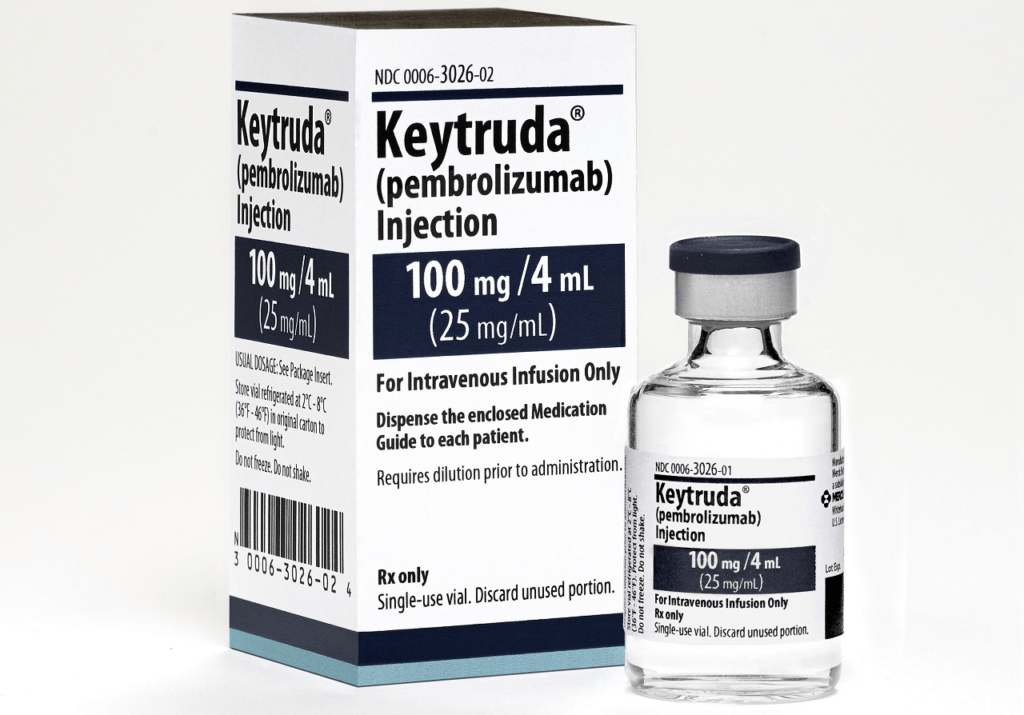The Ministry of Health, Labour and Welfare (MHLW) of Japan has approved Keytruda (pembrolizumab) plus Lenvima (lenvatinib) combination to treat radically unresectable or metastatic renal cell carcinoma (RCC).

The Keytruda plus Lenvima therapy is approved to treat metastatic renal cell carcinoma. Credit: 2009-2021 Merck Sharp & Dohme Corp., a subsidiary of Merck & Co., Inc., Kenilworth, N.J., U.S.A. All rights reserved.
Subscribe to our email newsletter
Keytruda is Merck’s an anti-programmed death receptor-1 (PD-1) therapy that increases the ability of the immune system in body for detecting and fighting tumour cells.
It is a humanised monoclonal antibody that hinders the interaction between PD-1 as well as its ligands, PD-L1 and PD-L2.
Lenvima, which is developed and discovered by Eisai, is an orally available multiple receptor tyrosine kinase inhibitor.
It works by inhibiting the kinase activities of vascular endothelial growth factor (VEGF) receptors VEGFR1 (FLT1), VEGFR2 (KDR), and VEGFR3 (FLT4).
The combination therapy is also approved in Europe and the US as the first-line treatment for advanced RCC adult patients.
In December last year, Keytruda plus Lenvima was approved by Japan’s MHLW to treat patients with unresectable, advanced or recurrent endometrial carcinoma that continued to progress after chemotherapy.
Eisai senior vice-president and Eisai Japan president Terushige Iike said: “The milestone for Keytruda plus Lenvima as a treatment for radically unresectable or metastatic renal cell carcinoma is particularly exciting as it marks the second approval for the combination in Japan.
“We are thrilled to be able to provide Japanese patients with a new treatment option, illustrating our shared commitment with Merck to develop therapies with the aim of addressing the unmet needs of those living with difficult-to-treat cancers.”
The MHLW approval is supported by the data obtained from the pivotal Phase III CLEAR (Study 307)/KEYNOTE-581 trial which was conducted in 1,069 patients with advanced RCC.
In this trial, the combination therapy showed statistically significant improvements in the primary efficacy outcome of progression-free survival (PFS) compared with sunitinib.
It showed a 61% reduction in risk of disease progression or death.
The most common adverse reactions seen in the trial include hypertension, hypothyroidism, fatigue, stomatitis, palmar-plantar erythrodysesthesia syndrome, proteinuria, nausea, dysphonia, rash and asthenia.
 Advertise With UsAdvertise on our extensive network of industry websites and newsletters.
Advertise With UsAdvertise on our extensive network of industry websites and newsletters.
 Get the PBR newsletterSign up to our free email to get all the latest PBR
news.
Get the PBR newsletterSign up to our free email to get all the latest PBR
news.

